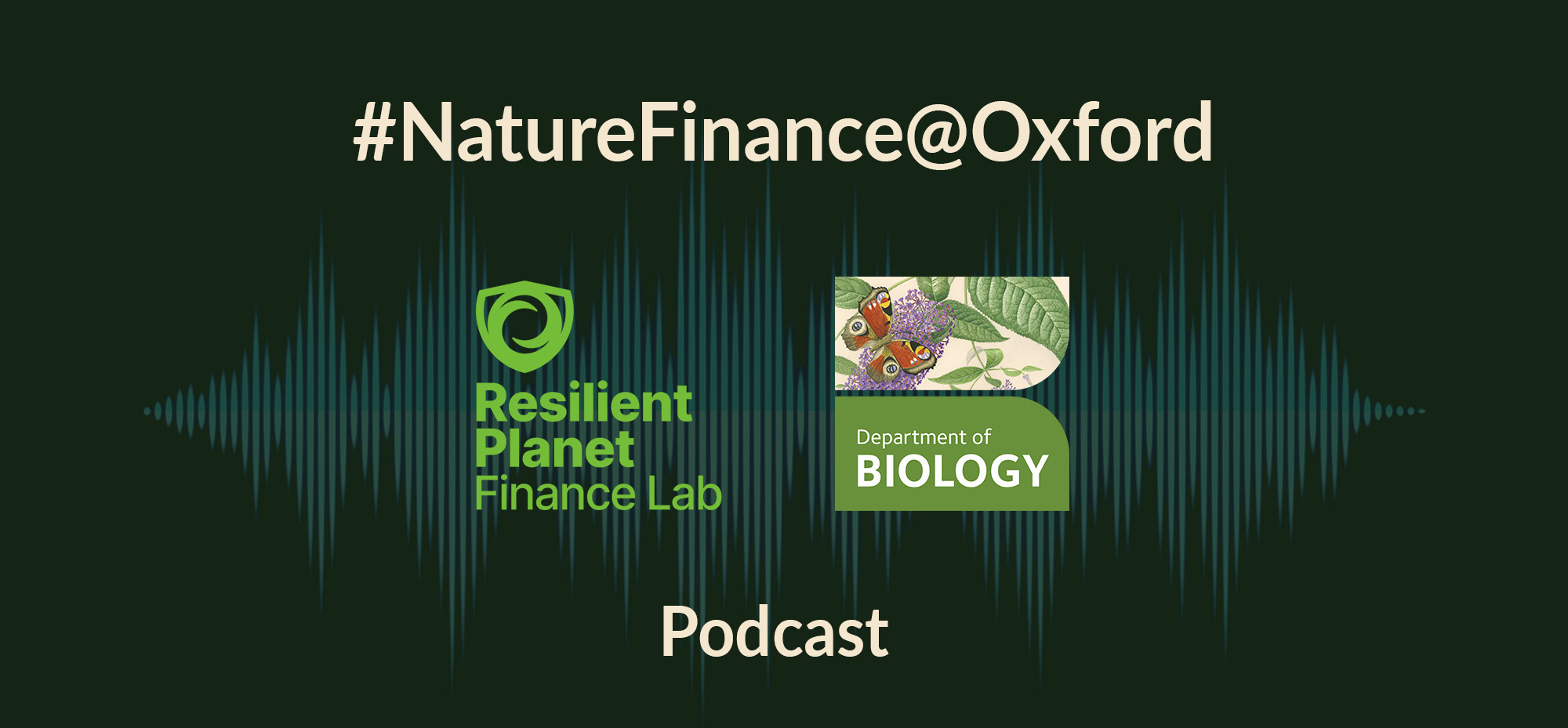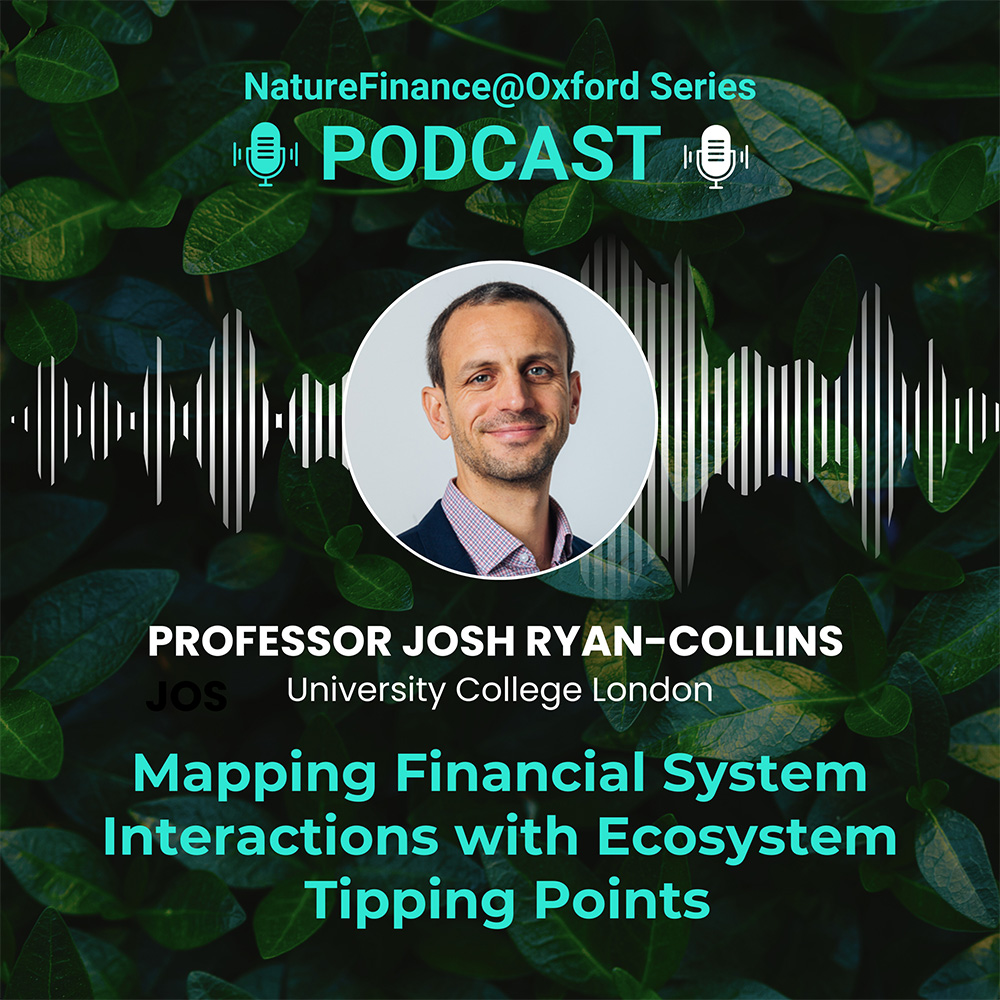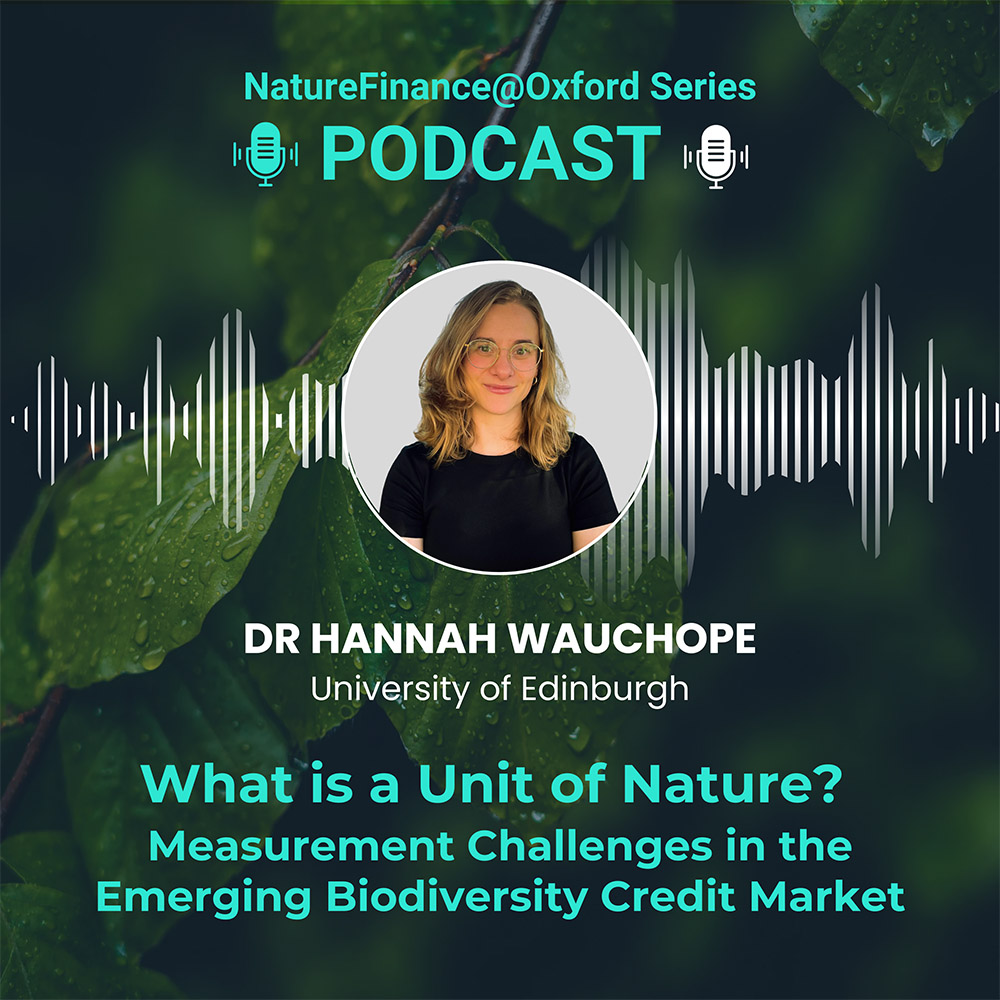This podcast features the highlights of the new collaborative NatureFinance@Oxford Seminar Series, which brings together leading researchers to explore the critical intersection of biodiversity and nature financing. The series is a collaboration between the Resilient Planet Finance Lab and the Oxford Nature Positive Hub, Department of Biology.

Episode 1
Mapping Financial System Interactions with Ecosystem Tipping Points: Evidence from the Brazilian Amazon and Indonesian Peatlands
Professor Josh Ryan-Collins
University College London
How do financial flows contribute to large-scale ecosystem breakdown? This seminar explores the macroeconomic and financial risks posed by ecosystem degradation, focusing on two critical ecosystems: the Brazilian Amazon and Indonesia’s tropical peatlands. Using supply chain data, Prof Josh Ryan-Collins identifies 39 companies driving deforestation and analyses a decade of financial flows — spanning loans, equity, and debt issuances — tracing them back to major commercial and investment banks.
Episode 2
What is a Unit of Nature?
Measurement Challenges in the Emerging Biodiversity Credit Market
Dr Hannah Wauchope
University of Edinburgh
As interest in measuring biodiversity grows, the need for standardised, generalisable metrics becomes increasingly important — especially for businesses and the financial sector looking to quantify biodiversity impacts. In this episode, Dr Hannah Wauchope dives into a groundbreaking framework designed to clarify how biodiversity units are defined within the rapidly expanding voluntary biodiversity credits market.
Episode 3
The Promise and Pitfalls of Biodiversity Finance: A Conversation with Siddarth Shrikanth (Director of Natural Climate Solutions at Just Climate)
In this episode, Siddarth Shrikanth, investor and author, talks to Dr Sophus zu Ermgassen about the promises and pitfalls of biodiversity finance — how money is flowing into nature-based solutions, where it’s falling short, and why current financial systems struggle to truly value nature. He unpacks the challenges of measuring impact, the limits of market-based solutions, and the growing role of private capital in addressing environmental crises.
Episode 4
Derisking Biodiversity Investments: Lessons from the Energy Transition
Dr Florian Egli
Technical University of Munich
Can derisking unlock private finance for biodiversity? International negotiations often highlight the need for private capital to support biodiversity and ecosystem restoration. But under what conditions can private finance truly make a difference? In this episode, Florian Egli analyses biodiversity finance deals and introduces a practical framework to assess whether derisking — a proven tool in other transitions — could help mobilise investment for nature.





